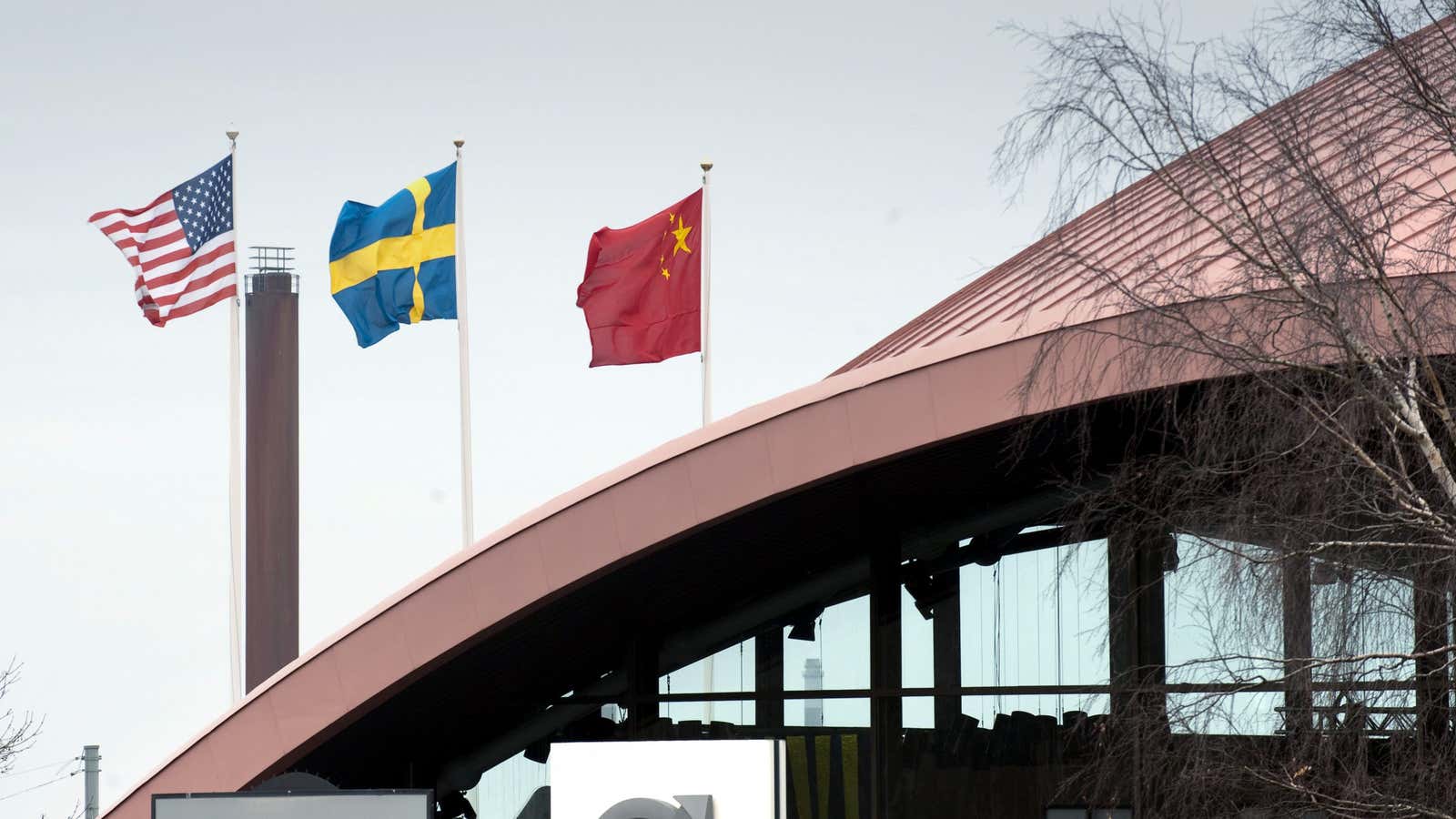Late last week, Germany was surprised to learn that a little-known Chinese automaker had become the biggest single shareholder in Daimler, with a $9 billion investment. Zhejiang-based Geely now has a 9.7% stake in the owner of Mercedes-Benz.
The deal is the perfect example of the divergence between the US and Europe when it comes to Chinese capital.
The US in January vetoed online payment giant Ant Financial’s proposed $1.2 billion purchase of remittance firm MoneyGram. It also nixed recent efforts by Chinese telecom equipment firm Huawei to sell its phones in the US via tie-ups with companies like AT&T. These blocks followed the veto last year of a planned acquisition of chipmaker Lattice Semiconductor by a China-linked investment fund. With another factor being Beijing’s clampdown on “irrational” outbound investment, last year Chinese investment in the US fell by a third from a year ago, to $29 billion in completed deals.
Meanwhile, Huawei shipped more smartphones in Europe last year than anyone but Samsung and Apple, is a major equipment provider to Spain’s telecom sector, and announced last month plans to spend more than $4 billion in the UK on procurement over the next five years. Geely has invested more than $12 billion in Europe in the past three months, counting the $3.3 billion it poured into Sweden’s Volvo Trucks in December. The Daimler investment could make China the biggest foreign investor in Germany in 2018.
In all, Chinese companies injected more than $80 billion (pdf) into Europe in 2017, a record high, according to data from law firm Baker McKenzie and research firm Rhodium Group, although this was in part due to the delayed completion of the mega-deal for Swiss pesticides-and-seed firm Syngenta, which accounted for more than half. But even without that deal, investment in Europe in 2017 remained substantially higher than in the US. A decade earlier, Chinese investment in Europe was around $1 billion (pdf). Geely’s massive spending in Europe dates back to 2010, when it bought Volvo’s car unit from Ford for $1.8 billion, a deal that was followed by a slew of other automotive investments by Chinese companies.
Could big overseas investments spell trouble for Geely with Chinese authorities, as it did recently for Anbang Insurance? Last Friday Beijing took control of the insurer for a year, citing concerns over its debts. Anbang had drawn increased regulatory scrutiny of its governance as a result of its prominent overseas acquisition forays, including of luxury hotels like New York’s Waldorf Astoria. One difference in Geely’s favor is that its spending is more focused on its core business—and in line with China’s desire to develop a more high-tech economy.
Of course, Europe’s more sanguine approach to Chinese acquisitions might not continue indefinitely. Germany tightened its foreign takeover rules last year, and now will weigh whether it needs stricter investment disclosure rules.
